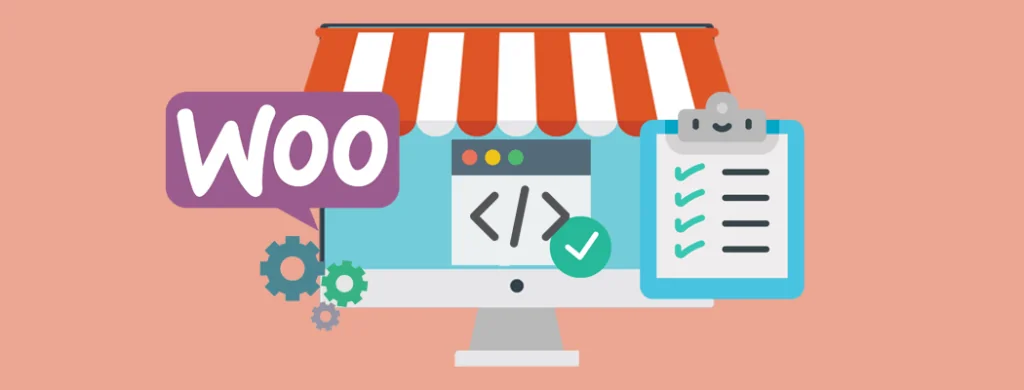In the ever-evolving landscape of eCommerce, the reliability and security in WooCommerce plugin development, and online platforms have become non-negotiable.
As WooCommerce continues to be a preferred choice for online businesses, the development of plugins for this platform demands a keen focus on these critical aspects.
This guide aims to shed light on the best practices for ensuring the safety and performance of your WooCommerce plugins, thereby fostering a secure and trustworthy environment for your customers.
Understanding the Risks
In the development of WooCommerce plugins, it’s crucial to recognize the potential security threats that can jeopardise your online store, including but not limited to:
1. SQL Injections – These occur when attackers exploit vulnerabilities in your plugin’s SQL queries, allowing them to execute malicious SQL code. For instance, if your plugin incorporates user input into a SQL query without proper sanitisation, an attacker could inject a malicious SQL statement to manipulate or access sensitive data in your database. This could lead to unauthorised access to customer information, alteration of prices, or even complete database compromise.
2. Cross-Site Scripting (XSS) – XSS attacks involve the injection of malicious scripts into web pages, which are then executed by unsuspecting users. If your plugin fails to properly sanitise user input or output, an attacker could embed a script in a form field or URL that, when accessed by another user, executes malicious actions such as stealing sensitive information or hijacking user sessions.
3. Data Breaches – A data breach can occur due to various factors, including weak passwords, outdated software, or security vulnerabilities in your plugin. Once an attacker gains unauthorised access to your store’s data, they can exfiltrate sensitive information such as customer addresses, payment details, and personal data, leading to financial losses, legal consequences, and reputational damage.
4. Cross-Site Request Forgery (CSRF) – In CSRF attacks, attackers trick users into performing unintended actions on your website, such as changing account settings or initiating transactions without their consent. For example, an attacker could create a malicious webpage that, when visited by a logged-in user, submits a form to your site that alters the user’s account settings.
5. File Inclusion Vulnerabilities – These vulnerabilities arise when your plugin improperly allows the inclusion of files, leading to the execution of malicious code on your server. For instance, if your plugin includes files based on user input without proper validation, an attacker could include a malicious file that compromises your website’s security.
When we develop bespoke plugins for our clients, we ensure security is at the forefront of our process.
Best Practices for Secure Coding
To ensure the security of your WooCommerce plugin, adhere to these best practices for secure coding:
1. Input Validation and Sanitization – Rigorously validate and sanitise all user inputs to prevent SQL injections and XSS attacks. Use WordPress functions like `sanitize_text_field()` for text inputs and `esc_sql()` for SQL queries to ensure that inputs are properly cleaned before use.
2. Use Nonces for Form Submission – Nonces are unique tokens used to verify the origin and intention of requests, helping prevent CSRF attacks. WordPress provides functions like `wp_nonce_field()` to generate nonces for form submissions, ensuring that the request is legitimate and intended.
3. Prepared Statements for SQL Queries – Use prepared statements to execute SQL queries safely. This method separates the query structure from the data, making it more difficult for attackers to inject malicious SQL code. For example, use the `$wpdb->prepare()` method in WordPress to create prepared statements.
4. Regular Security Audits – Conduct thorough security audits of your plugin code to identify potential vulnerabilities. Automated tools like WPScan can assist in some aspects of these audits, but manual review by experienced security professionals is also crucial.
5. Adhere to WordPress Coding Standards – Following WordPress Coding Standards ensures that your code is readable, maintainable, and secure. This includes practices like using proper indentation, avoiding the direct use of superglobals, and employing strict comparison operators.
For more best practices, check out WordPress Coding Standards and Customizing WooCommerce: Best Practices.
Regular Updates and Maintenance
Keeping your plugin up to date and well-maintained is essential for security and compatibility:
1. Monitor Vulnerability Databases – Regularly check vulnerability databases and security advisories related to WordPress and WooCommerce to stay informed about new threats and vulnerabilities that may affect your plugin.
2. Implement Automatic Update Mechanisms – Consider incorporating automatic update functionality into your plugin to ensure that users always have the latest, most secure version. This can be achieved through the WordPress Plugin Repository or custom update mechanisms.
3. Version Control – Use version control systems like Git to manage changes to your plugin code. This allows you to track modifications, revert changes if necessary, and maintain a history of updates, facilitating accountability and traceability.
4. Deprecation Strategy – Develop a clear strategy for deprecating outdated functions and features. Communicate these deprecations to your users through notifications and provide guidance on alternatives or upgrade paths to ensure a smooth transition.
Thorough Testing for Reliability
Comprehensive testing is crucial to ensure the reliability of your WooCommerce plugin:
1. Automated Testing – Implement automated testing frameworks like PHPUnit or WP-CLI to run tests regularly. Automated tests help catch issues early in the development process and ensure that your plugin functions correctly under various conditions.
2. Stress Testing – Conduct stress testing to evaluate how your plugin performs under high load conditions. This is particularly important for plugins that handle payment processing or other critical functionalities, as it ensures that your plugin can handle peak traffic times without issues.
3. Compatibility Testing – Test your plugin across different versions of WordPress, WooCommerce, and various themes to ensure compatibility. Additionally, test your plugin with other popular plugins to check for conflicts. This helps ensure that your plugin works seamlessly in a variety of environments and does not cause issues for users who have multiple plugins installed.
4. User Acceptance Testing (UAT) – Involve real users in the testing process to ensure that the plugin meets their needs and works as expected in real-world scenarios. Gather feedback from users and address any issues they encounter to improve the overall user experience.
Implementing Security Measures
Enhance the security of your WooCommerce plugins with these additional measures:
1. Two-Factor Authentication (2FA) – Implement 2FA for administrative accounts to add an extra layer of security. This requires users to provide a second form of authentication, such as a code sent to their mobile device, in addition to their password.
2. Secure Communication – Ensure that all communication between your plugin and external services is encrypted using SSL/TLS. This is particularly important for plugins that transmit sensitive data, such as payment information.
3. Access Control – Implement strict access control measures to ensure that users have only the necessary permissions to perform their tasks. Follow the principle of least privilege by granting users the minimum level of access required.
4. Security Headers – Use security headers like Content Security Policy (CSP) and X-Frame-Options to protect against common attacks such as XSS and clickjacking. These headers instruct the browser on how to handle certain types of content and can prevent malicious content from being executed.
It may be important to note that this isn’t a complete list. Here at Progressus, we ensure all the plugins we develop are built with top-notch security in mind.
Staying Informed and Proactive
Staying ahead in the security landscape requires continuous learning and proactivity:
1. Security Training – Regularly train your development team on the latest security best practices and emerging threats. This helps ensure that your team is equipped to identify and address security issues effectively.
2. Community Engagement – Participate in WooCommerce and WordPress forums and communities. Engaging with other developers and security experts can provide valuable insights and help you stay informed about new vulnerabilities and solutions.
3. Security Monitoring – Implement security monitoring tools to detect and respond to potential security threats in real time. This can include intrusion detection systems, security information and event management (SIEM) systems, and other monitoring solutions.
4. Incident Response Plan – Develop a comprehensive incident response plan to handle security breaches effectively. This should include procedures for identifying, containing, and mitigating security incidents, as well as communicating with affected parties.
Reliability and Security in WooCommerce Plugin Development: Done
Developing secure and reliable WooCommerce plugins is crucial for the success and growth of your online business. You can ensure that your WooCommerce plugins are not only functional but also secure and reliable by:
- Following best practices for secure coding
- Staying vigilant with regular updates and maintenance
- Thoroughly testing for reliability
- Implementing robust security measures, and
- Staying informed about the latest trends and threats
This proactive approach will help you build trust with your customers, comply with regulatory requirements, and establish a solid foundation for the continued growth and expansion of your business.
In today’s fast-paced digital world, developing secure and reliable WooCommerce plugins – like we do at Progresus – is no small feat. It requires a deep understanding of security best practices, regular maintenance, and a commitment to thorough testing. With the complexities and risks involved, it would be unwise to take on this challenge alone when you have the option to partner with the experts at Progressus.
Our team of seasoned developers specialises in creating custom WooCommerce solutions that are not only functional but also secure and optimised for your business needs. Why take the risk and invest the time when you can get Progressus to do it for you? Contact us today to get a quote and take the first step towards a more secure and successful online store.


